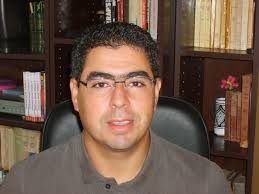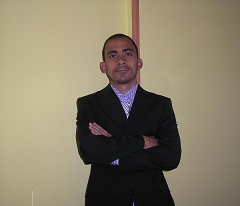
|
|
|
Tutorials
Tutorial 1 : Combining metaheuristics with mathematical programming and machine learning Prof. El-Ghazali Talbi, University of Lille, France Abstract : During the last years, interest on hybrid metaheuristics has risen considerably in the field of optimization and machine learning. The best results found for many optimization problems in science and industry are obtained by hybrid optimization algorithms. Combinations of optimization tools such as metaheuristics, mathematical programming, constraint programming and machine learning, have provided very efficient optimization algorithms. Four different types of combinations are considered in this paper: (i) Combining metaheuristics with complementary metaheuristics. (ii) Combining metaheuristics with exact methods from mathematical programming approaches which are mostly used in the operations research community. (iii) Combining metaheuristics with constraint programming approaches developed in the artificial intelligence community. (iv) Combining metaheuristics with machine learning and data mining techniques. Biography: El-Ghazali Talbi received the Master and Ph.D. degrees in Computer Science from the Institut National Polytechnique de Grenoble in France. He is a full Professor in Computer Science at the University of Lille (France) and head of the DOLPHIN team dealing with robust multi-objective optimization of complex systems (INRIA, CNRS, University of Lille). His current research interests are in the fields of metaheuristics, multi-objective combinatorial optimization, parallel and cloud computing, hybrid and cooperative optimization, and application to logistics/transportation, cloud computing, energy and biomedical. He is the founder of the conference META (International conference on metaheuristics and nature inspired computing) and co-founder of the META group (GDR RO, GDR MACS, ROADEF). Professor E-G. Talbi has to his credit more than 150 international publications and 5 books. His h-index is 45.
Tutorial 2 : Production and logistics optimization - Parallel machines scheduling Prof. Farouk Yalaoui, UTT, France Abstract : The aim of this presentation is to give an overview of some logistics optimization problem especially about the scheduling ones. The scheduling is to assign jobs to resources at established moments according to some constraints in order to optimize a given criterion. A couple of Results on parallel machines, re-entrant process and jobshop cases are developed with different criteria. The problems are both industrial configuration, with industrial partner, and academic. These results are proved, implemented on real data and already published in international journals. Key words: Scheduling, parallel machines, re-entrant process, job-shop, theoretical case, industrial case, optimization methods. Biography: Prof. F. Yalaoui is currently a full Professor at Troyes University of Technology (UTT), France, where he is the head of Optimisation Industrial systems Optimisation Lab (Research Team), Charles Dealaunay Institute (ICD), UMR CNRS 6281 since 2012, and Special Advisor to the University President since 2016. He obtained his Engineering degree in Industrial Engineering from the Polytechnics School of Algiers (Algeria) in 1995, his master’s degree in Industrial System Engineering from Polytechnics Institute of Lorraine (Nancy, France) in 1997, his Ph.D. degree in Production Management from the Troyes University of Technology (UTT) in 2000 and followed by a Habilitation à diriger les recherches (Dr. Hab) from Compiegne University of Technology (UTT) in 2006. His research topic focuses on the scheduling problems, system design, operations research, modeling, analysis and optimization of logistic and production systems, reliability and maintenance optimization and on optimization problems in general.
Tutorial 3 : Model-based evolutionary algorithms: A machine learning approach By Dr. Roberto Santana, University of the Basque Country (Spain)
Abstract : This tutorial will explain the use of model-based evolutionary algorithms (EAs) with emphasis in estimation of distribution algorithms (EDAs), a class of model-based EAs that use probabilistic modeling of the search space. The tutorial will present the rationale behind methods that model the evolutionary search. The basics of probabilistic modeling in EAs will be reviewed, with a brief presentation of the best known EAs and their characteristic features. EDAs based on Bayesian networks, Markov networks and continuous probabilistic graphical models will be presented. Then, model-based search in EAs will be approached from a machine-learning point of view, describing the role of the different EDA components in guaranteeing an efficient search of the space. The last part of the tutorial will analyze practical applications of model-based EAs, known limitations of these algorithms and a short overview of recent developments in areas such as hybrid model-based EAs, theoretical approaches, and multi-objective EDAs. Biography: Roberto Santana received the M.Sc. degree in Computer Science from the University of Havana, Cuba, in 1996. He received a Ph.D. in Mathematics from the University of Havana in 2005 and a Ph. D. in Computer Science from the University of the Basque Country, in Spain, in 2006. He is a Tenured researcher at the Intelligent Systems Group |
| Online user: 2 | RSS Feed |

|



